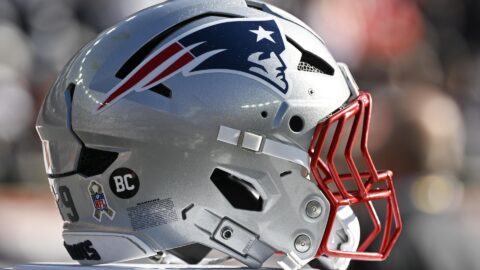Editor’s note: Each day this week, NESN.com Red Sox reporter Tony Lee has profiled Daniel Bard’s rise to the big league. On Thursday, Bard’s fast ride through the minors and impressive rookie season were relived.
Jonathan Papelbon is undeniably the best closer in Red Sox history. In his first four seasons in the role he had 151 saves, a 1.74 ERA and 20 2/3 consecutive scoreless innings in the postseason. For a second-year player just hitting his mid-20s to gain notoriety as Papelbon’s probable successor has little to do with Papelbon having a couple of rough outings in 2010. It has much more to do with how good that second-year guy is.
Indeed, even before the 2010 season began, fans and media types were already wondering not if, but when, Daniel Bard would assume the closer role for the Red Sox. It’s one thing for that to occur when the closer is expendable. It’s quite another when he has the pedigree of Papelbon.
Manager Terry Francona is fond of saying that it almost doesn’t matter. Games are so often won in the seventh and eighth innings, he says, and closers often enter clean innings anyway. It’s proven in the numbers — of the 14 American League relievers with a WAR higher than Papelbon last year, eight were setup men, one of them Bard.
In just his second season in the majors, Bard was among the most valuable members of the Red Sox, and he began to relish the role, regardless of what many will say about his future.
”It’s nice to be able to take the wind out of their sails,” he said of his opponents, almost implying that it’s often a sinking ship that gets passed on to Papelbon.
Bard had the dominating fastball in his rookie campaign and was able to break off a pretty good slider from time to time. In 2010, he made both of those pitches that much more effective by sprinkling in an improving changeup, something that has begun to make opponents look silly.
The confidence in the pitch, and the awareness of when to use it, was an indication to many of his growth and maturity on the mound.
”Maybe a year ago he might not be able to make that pitch,” catcher Jason Varitek said after one shutdown performance in June. ”He’s becoming more complete, but he’ll continue to get better. And he’s pretty good where he’s at.”
With a more complete arsenal, those in support of Bard closing began to increase. And as the reliever who led the AL in average fastball velocity (97.9) continued his breakout season, his outings became an event.
That’s nothing new to Bard. His arm has caused people to stop and stare before. When he was in high school he played right field on days he didn’t pitch. Before games, during infield/outfield practice, he would throw darts to each base on the fly (”You kind of do that to let them know, don’t even try to run,” said Greg Simmons, Bard’s coach in high school), drawing a crowd of onlookers, including the opponents.
Those who saw Bard when he was making a spectacle of pre-game practice are confident he can one day assume that closer’s role.
”I don’t think he would miss a beat,” Simmons said. ”I think he’s prepared himself both mentally and physically. I think he’ll do fine.”
Bard’s coach at the University of North Carolina, Mike Fox, said he resisted the temptation of having the tall righty serve as his closer for three years. He was too talented to reserve for an inning a game, so he remained a starter, but that urge was always there for Fox.
”We all probably saw that if he ever figured it out and commanded that fastball and just came up with an above-average secondary pitch, as calm as Daniel is, he had the right demeanor [to be a closer at the major league level],” Fox said.
To the man that makes the decisions now, however, Bard is perfectly placed. There may come a day when Francona has Bard as the last line of defense, but right now there are, as the skipper likes to say, fires to be put out in the seventh and eighth innings. Those situations are often just as crucial as anything a closer would face.
After a phenomenal 2010 season in which Bard posted a 1.93 ERA in 73 games, the manager knows he has one of the best options available to put out those fires.
”He’s confident. He should be,” Francona said of Bard during the breakout campaign. ”He’s gone through the league. Now he knows what he’s doing. He knows his role.”



